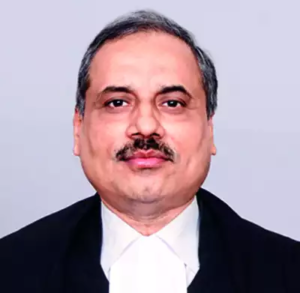
The Center announces the appointment of new chief justices for the high courts of Allahabad, Chattisgarh, and Patna

On Friday, the Union government announced the appointments of the chief justices of the high courts in Patna, Chhattisgarh, and Allahabad. The Union Ministry of Law and Justice released three distinct notices to this effect on Friday evening. The chief justices of the high courts of Kolkata, Manipur, and Himachal Pradesh have not yet been chosen, though.
The interim chief justice of the Allahabad High Court, Justice Pritinker Diwaker, has been named as the high court’s chief justice. His appointment had been suggested for February 9 by the Supreme Court Collegium.

Since October 3, 2018, Judge Diwaker has been serving as a transferee at the High Court of Judicature in Allahabad, where he is the senior-most puisne judge.
The chief justice of the Chhattisgarh High Court has been appointed as Justice Ramesh Sinha, who is now a judge at the Allahabad High Court. After his elevation on November 21, 2011, he has served as the Allahabad High Court’s second-most senior puisne judge. He currently holds the position of senior judge on the high court’s Lucknow bench.

On February 9, the Supreme Court Collegium also recommended his appointment as the Chhattisgarh High Court’s chief justice.
The chief justice of the Patna High Court is Justice K. Vinod Chandran, who is presently a judge at the Kerala High Court. His appointment had been suggested on February 7 by the Supreme Court Collegium. On November 8, 2011, Justice Chandran was appointed to the Kerala High Court as a judge.

When the current chief justice of the Gauhati High Court announced his retirement on December 13 of last year, the collegium recommended to the Union cabinet that Justice Chandran be named as the new chief justice. But it didn’t take place. Instead, the government announced that Justice Nongmeikapam Kotiswar Singh, the senior-most judge on the Gauhati High Court, had been named acting chief justice.
The collegium made a recommendation for Judge Chandran’s transfer to the Bombay High Court on September 28 of last year. The collegium recommended his elevation to the chief justice of the Gauhati High Court in December of last year, despite the fact that it was still ineffective.
However, the government has not yet implemented the recommendations made by the Supreme Court Collegium on February 9 regarding the appointment of Justice Dhiraj Singh Thakur of the Bombay High Court as Chief Justice of the Manipur High Court, as well as Judge T.S. Sivagnanam of the Calcutta High Court as Chief Justice of that high court.
As suggested by the collegium on February 7, the Jharkhand High Court judge Justice Aparesh Kumar Singh will serve as the chief justice of the Tripura High Court, while the acting chief justice of the Himachal Pradesh High Court, Judge Sabina, would serve as the chief justice of that high court.
Acting chief justices are still in charge of the high courts of Manipur and Himachal Pradesh.
Since the collegium’s recommendation for Justice A.K. Singh to be elevated to the chief justice of the Tripura High Court, the Union government has appointed Justice Jaswant Singh and Justice T.A. Goud, rendering the collegium’s recommendation for Justice A.K. Singh’s elevation meaningless. Notably, Justice Jaswant Singh only presided over the high court bench for a little under two weeks.
The current chief justice of the Calcutta High Court, Prakash Shrivastava, will step down on March 30. After Justice Shrivastava retires and the government fails to appoint Justice Sivagnanam as acting chief justice of the high court, Justice Sivagnanam will do so because he is a senior member of the high court.
The Union government was handed an “unpalatable consequences” warning by the Supreme Court on February 3 during a contempt petition hearing over the delay in appointing justices, if the collegium’s recommendations to transfer high court judges were not implemented within the following ten days. The removal of judges was deemed to be the most significant concern by a bench made up of Justices Sanjay Kishan Kaul and Abhay S. Oka.








